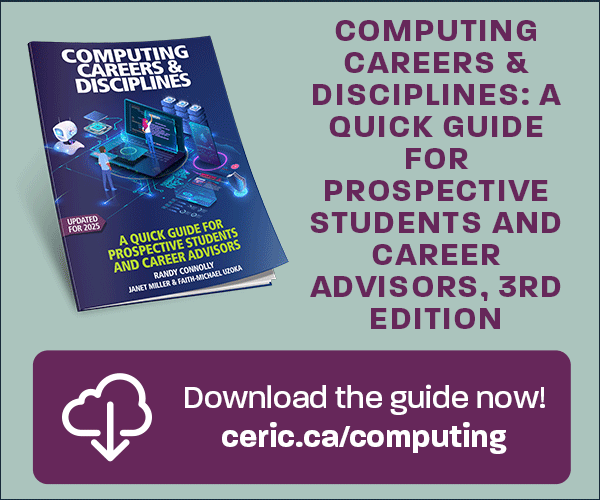Effectiveness of Emotional Intelligence Training in Enhancing Teaching Self Efficacy of Career-frustrated Teachers in Ondo State, Nigeria
Keywords:
emotional intelligence, training, self efficacy, teachers, career-frustrated, NigeriaAbstract
This study experimentally investigated the effectiveness of Emotional Intelligence Training on teaching self-efficacy of career-frustrated teachers in Ondo State, Nigeria. The sample consisted of 60 randomly selected careerfrustrated secondary school teachers (Male = 48 & Female 42; Internal Locus of Control = 24 & External Locus of Control = 36) in Ondo state. Teacher Sense of Efficacy Scale, Locus of control of Behaviour scale and demographic data form were administered to the teachers. Analysis of Covariance (ANCOVA) and Multiple Classification Analysis (MCA) were used to analyse the data .The results of the study showed that Emotional Intelligence Training effectively enhanced teaching self-efficacy of careerfrustrated teachers. Locus of control significantly influenced teaching self-efficacy of the experimental group, while gender was not significant. The implications of the findings for counselling and school administration were discussed. It was recommended that emotional intelligence training of career-frustrated teachers should be encouraged to improve
their teaching self-efficacy.
References
Adegoroye, A. O. S (1999). The job attitudes of some Nigerian secondary school teachers: African Journal of Educational Research 5.1:62-69.
Adeyemo, D.A. (2001). Teacher job satisfaction, job involvement, career and organizational commitments as correlates of students’ academic performance. Nigerian Journal of Applied Psychology, 6(2), 126-135.
Adeyoju, C.A. (1999). Training, value and adjustment among primary and post primary teachers. In J.O. Obemeata, S.O. Ayodele and M.A. Araromi (Eds.) Evaluation in
Africa. Ibadan: Stirling-Horden Publishers (Nig.) Ltd. Pp. 310-317.
Ajibade, E.S. (2005). The teacher: moulding the millennium nation builder. Emia Publications, Ibadan.
Aremu, A.O. (2005). A confluence of credentialing, career experience, self-efficacy, emotional intelligence and motivation on the career commitment of young police in Ibadan, Nigeria, Policing: An International Journal of Police Strategies and Management, 28(4), 609-618.
Aremu, A. (2007). A path model investigating some psycho-social factors determining teaching self-efficacy of career-frustrated teachers in Delta State, Nigeria. Perspectives in Education 23.4:243-242.
Aremu A. O. & Lawal, G. A. (2009) A path model investigating the influence of some personal-psychological factors on the career aspirations of police trainees: a perspective from Oyo State. Police Practice and Research, 10.3:329-254
Armor, D., Conroy- Oseguera, P., Cox, M., King, N., McDonell, L., Pascal, A., Pauly, E. and Zellman, G., 1976. Analysis of the school preferred reading programmes in selected Los Angeles minority schools (Rep. No. R-2007-LAUSD). Santa monica, C.A: RAND. (ERIC Document Reproductive Service No ED 130 – 243).
Ashton, P. (1985). Teachers’ sense of efficacy : A paradigm for effective teacher Journal of Teacher Education 12 : 17 - 28.
Ashton, P. T. & Webb, R. (1986). Making a difference: Teachers’ sense of efficacy and student achievement. New York: Longman.
Bamigbade, A. K, (2000). Relationship between career commitment organisation commitment and job performance of local government employees: case study of Itesiwaju Atisbo and Saki east local government. Area of Oyo State. Education and Information Abstracts 2000 – 2002 1:100
Bar-On, R. (1997). Bar-On Emotional Quotient Inventory: Technical man
Bar-On, R. (2006). EQ-I: Bar-On emotional social intelligence (ESI). Psiothema 18:13-25.
Bellamy, A.R., & Bellamy, A.R. (2003). Emotional intelligence and transformational leadership: Recursive processes within the context of employee work attitude. Midwest Academy of Management, 23, 3, 19 – 31.
Bernstein, G. A, Layne, A. E. and Egan, E.A. (2005). School-based interventions for anxious children. Journal of the American Academy of Children and Adolescent Psychiatry 44:1118-1127.
Bursal, M. (2008). Changes in Turkish pre-service elementary teachers’ personal science teaching efficacy, beliefs and science anxieties during a science method course. Journal of Turkish Science Education 5.1:10- 23.
Cakiroglue, J., Cakiroglue E. and Boone. (2005). Pre-service teacher self-beliefs regarding Science Teaching: A comparison of pre-service teacher in Turkey and the
USA. Science Education 14.1:31- 45.
Carmeli, A. (2003). The relationship between emotional intelligence and work attitudes, behaviour and outcomes. Journal of Managerial Psychology, 18(8), 788-813.
Chan, D. W. (2004). Perceived emotional intelligence and self-efficacy among Chinese secondary school teachers in Hong Kong. Personality and Individual Differences, 36(8), 1781-1795.
Coladarci, T. & Breton, W. A. (1997). Teacher efficacy, supervision, and the special education resource-room teacher. The Journal of Educational Research, 90(4), 230-240.
Coladarci, T. (1992). Teachers’ sense of efficacy and commitment to teaching. Journal of Experimental Education 60:323-337.
Craig, A. R., Franklin, J. A. and Andrew, G. (1984). A scale to measure locus of control of behaviour. British Journal of Medical Psychology 57:173-180.
Dembo, M. & Gibson, S. (1985). Teachers’ sense of efficacy: An important factor in school improvement. Elementary School Journal, 86, 173- 184.
Department of Education and Training (2005). Whole School Improvement. [viewed 28 Nov 2005, verified 1 May 2007] http://www.sofweb.vic.edu.au/innovations/schoolsfund/program/wholeschool.asp
Dicke, A. S. 1997. Assessment and management of frustrations associated with the Universities. Unpublished M.Sc Research Project, Department of Psychology, University of Lagos.
Enochs, L. G., Scharmann, L. C. & Riggs, I.M. (1995). The relationship of pupil control to preservice elementary science teacher self-efficacy and outcome expectancy.
Science Education, 79, 63-75.
Fer, S. 2004. Quantitative evaluation of emotional intelligence in-service programme for secondary school teachers. The Quantitative Report 9.4: 562–588.
Gibbs, C. (2002). Effective teaching: exercising self efficacy and thought control of action. Paper presented at the Annual Conference of the British Educational Research Association, University of Exeter, England, September. [verified 1 May 2007] http://www.leeds.ac.uk/educol/documents/00002390.htm
Gibson, S., & Dembo, M. (1984). Teacher efficacy: A construct validation. Journal of Educational Psychology,76, 569-582.
Girdano, D. and Everly, G. 1979. Controlling stress and tension: A holistic approach. Englewook Cliffs: Prentice Hall.
Goleman, D. (1995). Emotional intelligence. London: Bloomsbury Publishing.
Gorrell, J. & Hwang, Y.S. (1995). A study of self-efficacy beliefs among preservice teachers in Korea. Journal of Research and Development in Education, 28, 101-105.
Guskey T. R. & Passaro, P. D. (1994). Teacher efficacy: A study of construct dimensions. American Educational Research Journal, 31, 627-643.
Hellman, C. M. 1997. Job satisfaction and intent to leave. Journal of social Psychology 137.6:677-689.
Henson, R. K., Kogan, L. R. & VachaHaase, T. (2001). A reliability generalization study of the teacher efficacy scale and related instruments. Educational and Psychological Measurement, 61(3), 404-420.
Huang, X., Liu and Shiomi, K. 2007. An analysis of relationships between teacher efficacy, teacher self esteem and orientations to seeking help. Social Behaviour and Personality: An International Journal 35.5:707- 716.
Iaffaldano, M.T. and Muchinsky, P.M. 1985. Job satisfaction and Job performance: A meta- analysis. Psychological Bulletin 97:251- 273.
Jamal, M. 1997. Job stress, satisfaction and mental health: an empirical examination of self employed and non-self employed Canadian. Journal of Small Business Management, 35.4:48-57.
Male, D. and May D. 1998. Stress and health, workload and burnout in learning support coordinators in colleges of further education. Support for Learning 13:134–138.
Ng, A. and Hor, K. K. 2005. Teaching attitudes, emotional intelligence and creativity of school teachers in Singapore. Educational research Journal 20.2: 207-220
Nunnally, J. C. 1967. Psychometric Theory. New York: Mc-Graw-Hill.
Nwagwu, H.O. & Salami, S.O. (1999). Self-esteem, locus of control, selfefficacy and neuroticism as correlates of job satisfaction among secondary school teachers in Nigeria. African Journal for the Psychological Study of Social Issues, 4(1), 48-61.
Okolie, T. O. 1991. Teacher competence and evaluation of instructional programmes in austere times. the case of mathematics. Trends and Research in Educational Technology. I. Imogie, D.A Onyejemezi, M.A. Mkpa and I.L Anukan. Eds. Ibadan: Y- Book.
Ostroff, C. 1992. The relationship between satisfaction, attitude and performance: An organisational level analysis. Journal of Applied Psychology 963-974.
Penrose A., Perry, C. and Ball, I. 2007. Emotional intelligence and teacher self-efficacy: The contribution of teacher and length of experience. Issues in Education Research. 17.1:107-126.
Perry, C., Ball, I. & Stacey, E. (2004). Emotional intelligence and teaching situations: Development of a new measure. Issues in Educational Research, 14(1), 29-43.
http://www.iier.org.au/iier14/perry.html
Rockstraw, L.J. (2007). Self-efficacy, locus of control and the use of simulation in undergraduate nursing skills acquisition. http://hell.handlenet/1860/1224.
Russel-Bowie D: Dowson, M. 2005. Effects of background and sex on confidence in teaching the creative art: test of specific hypotheses. A paper delivered at Australian Association for Research in Education Conference, Sydney, Australia, 2005.
Saklofske, D. H., Michayluk, J. O. & Randhawa, B. S. (1988). Teachers’ efficacy and teaching behaviours. Psychological Reports, 63(2), 407-414.
Salami, S.O. 2007. Relationships of emotional intelligence and self-efficacy to work attitudes among secondary school teachers in Southwestern Nigeria. Essays in
Education 20:43-56.
Salovey, P. & Mayer, J. D. (1990). Emotional Intelligence. Imagination, Cognition and Personality, 9(3), 185-211.
Sutton, R. E. & Wheatley, K. F. (2003). Teachers’ emotions and teaching: A review of the literature and directions for future research. Educational Psychology Review, 15(4), 327-358.
Tschannen-Moran, M., Woolfolk Hoy, A. & Hoy W. K. (1998). Teacher efficacy: Its meaning and measure. Review of Educational Research, 68(2), 202-248.
Tschannen-Moran, M., Woolfolk-Hoy, A (2001). Teacher efficacy: capturing an elusive construct. Teaching and Teacher Education, 17, 783-805.
Uwaimeiye, R. & Onyewadume, M.A. (2001). Job satisfaction among teachers in a depressed economy: Status, challenges and implications. Nigerian Journal of Applied Psychology, 6(2), 168-176.
Woolfolk, A. E. and Hoy, A. E. (1990). Prospective teachers’ sense of efficacy and beliefs about control. Journal of Educational Psychology 82:81-91.
Woolfolk, A.E., & Hoy W.K (1998). Education and Psychology. Needham Heights, MA : Allyn & Bacon.

Downloads
Published
How to Cite
Issue
Section
License

This work is licensed under a Creative Commons Attribution-NonCommercial-NoDerivatives 4.0 International License.
















